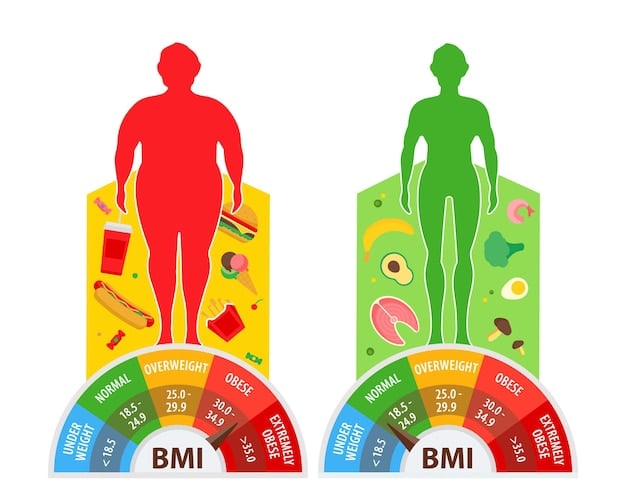Is Your Multivitamin a Waste of Money? 2025 Data Analysis

A comprehensive analysis of the multivitamin market in 2025 reveals that the effectiveness of many popular brands is questionable, suggesting that consumers may be wasting their money on supplements that don’t deliver the promised benefits.
Are you one of the millions who regularly take a multivitamin, hoping to boost your health and fill nutritional gaps? The question of whether is your multivitamin a waste of money? A data-driven analysis of top brands in 2025 is a crucial one to consider, so keep reading.
The Great Multivitamin Debate: What Does the Science Say?
For years, multivitamins have been a staple in many people’s daily routines. But are they truly beneficial, or just expensive placebos? Let’s explore what the latest scientific research reveals about the efficacy of multivitamins.
Conflicting Studies and Expert Opinions
The scientific community is divided on the benefits of multivitamins. Some studies suggest they can improve certain health markers, while others find no significant impact. Understanding these conflicting viewpoints is key.
Expert opinions also vary widely. Some nutritionists advocate for multivitamins as a safety net, while others argue that a balanced diet is sufficient for most individuals. We’ll examine these differing perspectives.

Key Nutrients Often Lacking in Modern Diets
Despite the availability of diverse foods, many people still fall short on essential nutrients. Let’s identify the nutrients most commonly lacking in modern diets and whether multivitamins can effectively address these deficiencies.
- Vitamin D: Crucial for bone health, immune function, and mood regulation. Many people don’t get enough from sunlight or diet alone.
- Magnesium: Involved in hundreds of bodily functions, including muscle and nerve function, blood sugar control, and blood pressure regulation.
- Potassium: Essential for maintaining healthy blood pressure and fluid balance. Many processed foods are low in potassium.
- Omega-3 Fatty Acids: Important for brain health, heart health, and reducing inflammation. Often lacking in diets low in fish.
In conclusion, the effectiveness of multivitamins is a complex issue with no easy answers. While they may provide some benefits for certain individuals, a balanced diet and targeted supplementation are often more effective strategies for optimizing health.
Analyzing the Top Multivitamin Brands of 2025
With so many multivitamin brands on the market, it can be overwhelming to choose the right one. We’ll delve into a data-driven analysis of some of the top-selling brands in 2025, examining their ingredients, dosages, and overall value.
Brand A: A Closer Look at the Claims
Brand A is known for its aggressive marketing and wide range of products. But does it live up to the hype? We’ll scrutinize its ingredient list and compare it to established scientific recommendations.
We’ll also analyze customer reviews and feedback to gain insights into the real-world experiences of people who have used Brand A’s multivitamins.
Brand B: Focusing on Bioavailability
Brand B emphasizes the bioavailability of its nutrients, claiming that its formulations are more easily absorbed by the body. We’ll investigate the scientific evidence behind these claims.

- Chelated Minerals: These are bound to amino acids, which may enhance absorption compared to non-chelated forms.
- Liposomal Delivery: This involves encapsulating nutrients in liposomes, which can improve their delivery to cells.
- Activated Forms: Some vitamins, like folate (as methylfolate), are already in their active forms, potentially bypassing the need for conversion in the body.
In summary, our analysis of the top multivitamin brands reveals that quality, bioavailability, and personalized needs play crucial roles in determining their effectiveness. Choosing a multivitamin based on scientific evidence and individual requirements is key.
Dosage Dilemmas: Are You Getting Too Much or Too Little?
One of the biggest challenges with multivitamins is getting the dosage right. Taking too much of certain nutrients can be harmful, while taking too little may not provide any benefit. Let’s explore the dosage dilemmas associated with multivitamins.
Understanding Recommended Daily Allowances (RDAs)
RDAs are guidelines for the average daily intake of nutrients needed to meet the nutritional requirements of most healthy individuals. It’s essential to understand RDAs to assess whether a multivitamin provides appropriate dosages.
However, RDAs are not one-size-fits-all. Individual needs may vary based on age, gender, activity level, and health status. We’ll discuss how to personalize your nutrient intake based on your unique circumstances.
The Risks of Over-Supplementation
While nutrient deficiencies are a concern, over-supplementation can also be dangerous. Let’s examine the risks associated with taking excessive amounts of certain vitamins and minerals.
- Vitamin A: High doses can lead to liver damage, bone loss, and birth defects.
- Iron: Excess iron can cause gastrointestinal issues, liver damage, and heart problems.
- Vitamin C: While generally safe, very high doses can cause digestive upset and interfere with certain medications.
In conclusion, understanding dosage guidelines and the potential risks of over-supplementation is crucial for safely and effectively using multivitamins. Personalizing your nutrient intake based on your individual needs and consulting with a healthcare professional are recommended.
Personalized Nutrition: Tailoring Your Supplement Regimen
The future of nutrition is personalized. Rather than relying on generic multivitamins, many experts advocate for tailoring your supplement regimen to your specific needs and genetic makeup. Let’s explore the concept of personalized nutrition.
Genetic Testing and Nutrient Needs
Genetic testing can reveal insights into your individual nutrient needs and predispositions. By understanding your genetic profile, you can optimize your diet and supplement regimen to support your unique health requirements.
Pharmacogenomics is a related field that examines how your genes affect your response to medications. This information can be used to personalize your treatment plan and minimize the risk of adverse effects.
The Role of Diet and Lifestyle
Supplements should complement, not replace, a healthy diet and lifestyle. Let’s emphasize the importance of prioritizing whole foods, regular exercise, and stress management alongside any supplementation efforts.
- Focus on nutrient-dense foods: Prioritize fruits, vegetables, whole grains, lean proteins, and healthy fats.
- Limit processed foods: Minimize your intake of sugary drinks, refined grains, and unhealthy fats.
- Engage in regular physical activity: Aim for at least 150 minutes of moderate-intensity exercise per week.
- Manage stress: Practice relaxation techniques like yoga, meditation, or deep breathing exercises.
In summary, personalized nutrition represents a paradigm shift in how we approach health and wellness. By tailoring your supplement regimen to your unique needs and prioritizing healthy lifestyle choices, you can optimize your well-being and achieve your health goals.
Food First: Prioritizing Whole Foods Over Supplements
In the quest for optimal health, it’s easy to get caught up in the world of supplements. However, many experts agree that food should always be the primary source of nutrients. Let’s explore the benefits of prioritizing whole foods over supplements.
The Synergy of Nutrients in Whole Foods
Whole foods contain a complex array of nutrients that work synergistically to promote health. This synergistic effect is often lost when nutrients are isolated and taken in supplement form.
For example, fruits and vegetables contain not only vitamins and minerals but also antioxidants, fiber, and phytonutrients that contribute to their overall health benefits.
The Pitfalls of Relying Solely on Supplements
Relying solely on supplements can lead to nutrient imbalances and neglect of other important aspects of a healthy diet. Let’s identify the pitfalls of over-reliance on supplements.
- Missing out on fiber: Whole foods are rich in fiber, which is essential for digestive health, blood sugar control, and weight management.
- Ignoring phytonutrients: Phytonutrients are plant compounds with antioxidant and anti-inflammatory properties that are not typically found in supplements.
- Developing a false sense of security: Taking supplements may give you a false sense of security, leading you to neglect other important aspects of a healthy lifestyle.
In conclusion, prioritizing whole foods over supplements is a cornerstone of optimal health. While supplements may have a role to play in certain circumstances, they should always be viewed as complementary to a balanced diet and healthy lifestyle.
Making Informed Choices: How to Evaluate Multivitamins
With so many multivitamins on the market, it’s essential to be an informed consumer. Let’s provide practical tips for evaluating multivitamins and making choices that align with your individual needs and goals.
Read Labels Carefully
Start by carefully reading the supplement label. Pay attention to the ingredient list, dosages, and any potential allergens or additives. Ensure that the multivitamin contains nutrients in forms that are easily absorbed by the body.
Also, be wary of products that make exaggerated claims or promise miracle cures. These claims are often unsupported by scientific evidence and may be misleading.
Consider Third-Party Certifications
Look for multivitamins that have been tested and certified by third-party organizations such as USP, NSF International, or ConsumerLab. These certifications ensure that the product has been independently tested for quality, purity, and potency.
- USP Verified: This certification indicates that the product meets USP’s standards for quality, purity, and potency.
- NSF Certified for Sport: This certification ensures that the product is free of banned substances and safe for athletes to use.
- ConsumerLab Approved: This certification indicates that the product has been independently tested and meets ConsumerLab’s standards for quality and purity.
In summary, by reading labels carefully, considering third-party certifications, consulting with healthcare professionals, and remaining skeptical of exaggerated claims, you can make informed choices about multivitamins and maximize their potential benefits while minimizing the risks.
| Key Point | Brief Description |
|---|---|
| 🔬 Science-Backed | Ensure your multivitamin’s ingredients are supported by scientific research. |
| 🎯 Personalized Needs | Consider your unique health requirements and lifestyle factors. |
| 🌱 Food First | Prioritize whole foods as the primary source of nutrients before supplementing. |
| ✅ Certifications | Look for third-party certifications to ensure quality and purity. |
FAQ
▼
No, multivitamins are not necessary for everyone. Individuals who eat a balanced diet may not need them. However, certain groups, such as pregnant women and older adults, may benefit.
▼
Taking too many multivitamins can lead to nutrient toxicity, which can cause various health problems. Some vitamins, like vitamin A, can be harmful in high doses.
▼
Look for products that have been third-party tested and certified for quality and purity. Also, consider your individual nutrient needs and consult with a healthcare professional.
▼
Commonly deficient nutrients include vitamin D, magnesium, and potassium. Make sure your multivitamin provides adequate amounts of these, but always within safe upper limits.
▼
Yes, it is possible to get all the necessary nutrients from a well-balanced diet. Prioritize whole, unprocessed foods, and consult with a nutritionist to identify potential gaps.
Conclusion
In conclusion, while multivitamins may offer some benefits, it’s crucial to approach them with a critical eye. Personalized nutrition, prioritizing whole foods, and understanding dosage guidelines are key to making informed choices that support your health and save you money.





